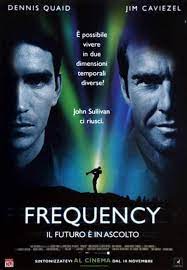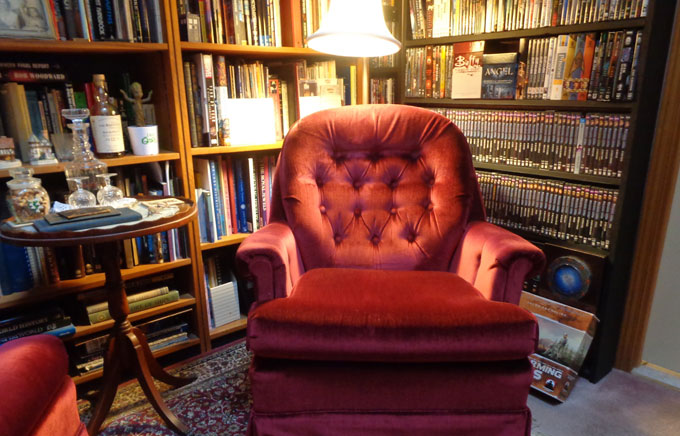
John Sullivan (Jim Caviezel) is a New York detective living in his childhood home. His girlfriend Samantha (Melissa Errico) leaves him because he is emotionally stunted by memories of his father Frank (Dennis Quaid), a firefighter who died in a fire when John was six. His lifelong friend Gordo (Noah Emmerich) gives him a ham radio that once belonged to his father, but he can’t get it to work.
The night before the anniversary of his father’s death, the radio begins to work during a particularly powerful aurora borealis and John talks to another man about the 1969 World Series. He realizes that he is somehow talking to his father back in 1969 and warns him against the mistake that cost him his life. Frank does not believe any of this but the next day he takes John’s advice and it saves his life. John suddenly has new memories of his father, up until he dies in the Eighties from lung cancer.
Other things have changed too. He has somehow prevented the death of the Nightingale serial killer that killed three nurses in the Sixties, who is now still alive and has killed ten more nurses, including John’s mother Julia (Elizabeth Mitchell). Trying to save her life, he passes on information to his father in the past. Frank saves the first victim, but when he tries to save the second, the Nightingale steals his driver’s license and frames Frank for the murder. John realizes that Frank’s wallet has the killer’s fingerprints and asks Frank to hide it in the house so he can find it thirty years later. Using the prints, John identifies the Nightingale as former detective Jack Shepard (Shawn Doyle).
Back in 1969, John’s future boss Detective Satch DeLeon (Frank Braugher) arrests Frank. He resists arrest and the radio is damaged. At the station, Frank tries to prove his innocence to Satch by predicting details of the 1969 World Series that John gave him. Frank escapes and breaks into Shepard’s apartment, where he finds evidence. Shepard turns up and attacks Frank, who appears to kill Shepard. Satch arrives and finds evidence to exonerate Frank, who goes home and fixes the radio. He quits smoking because his son warned him of his death from cancer.
In an exciting climax, both Frank and John are attacked in 1969 and 1999 by the same Shepard. Frank blows off Shepard’s hand in 1969. In 1999, his hand disappears as he battles John. The house changes around them. An elderly Frank, not dead of cancer, appears and kills Shepard. Father and Son embrace. In the end, there is a softball game including John, Frank, Samantha, Julia, and others. Their friend Gordo is rich from future stock-tips.
The film was directed by Gregory Hoblit and written by Toby Emmerich, brother of Noah, who plays Gordo. It received positive reviews and did well at the box office. The public found it exciting, full of amusing and fascinating time-tricks (perhaps a bit much), and it had heart, which not all SF does. There was a TV series that lasted for one season, and there were South Korean and Japanese versions. The time-loops during the climax were criticized, but I was so invested in the likable characters by that time that I found the tricks a lot of fun. Somehow, Jim Caviezel and Dennis Quaid had chemistry, even though they almost never appeared on the screen at the same time.
In the fire scene, except for three actors, all the firefighters are real. To promote the film, the New York Mets and Cincinnati Reds played a game in their 1969 uniforms. The details of the baseball trivia throughout were accurate. The ham radio call sign was real, belonging to the Niagara Radio Club of Lewiston, NY. The physics consultant, always good to have on a time-travel story, appears on screen, being interviewed by Dick Cavett on TV, once in 1969 and once in 1999. Director Gregory Hoblit was a producer of Hill Street Blues. An episode that he directed is shown on TV in the background.
